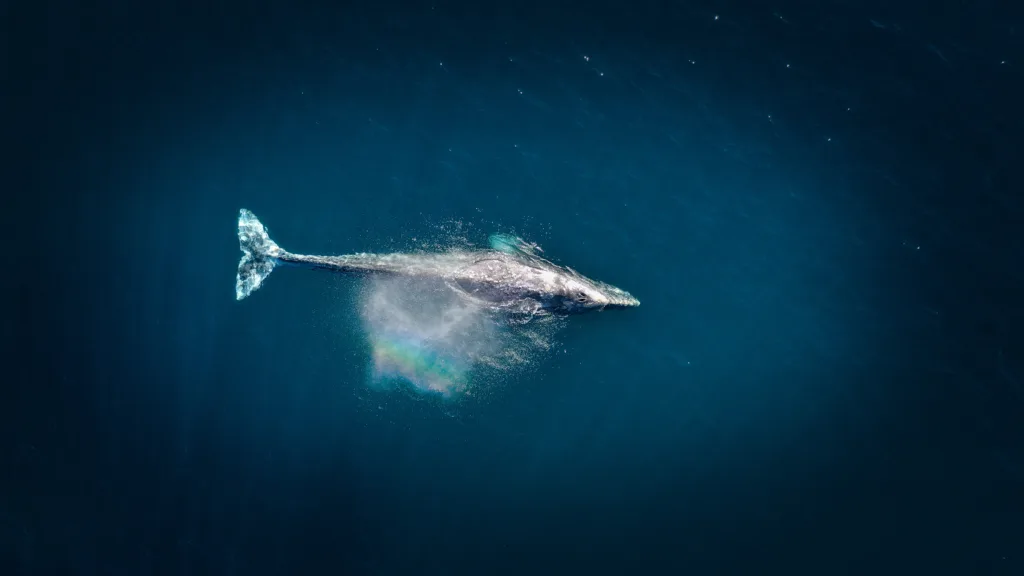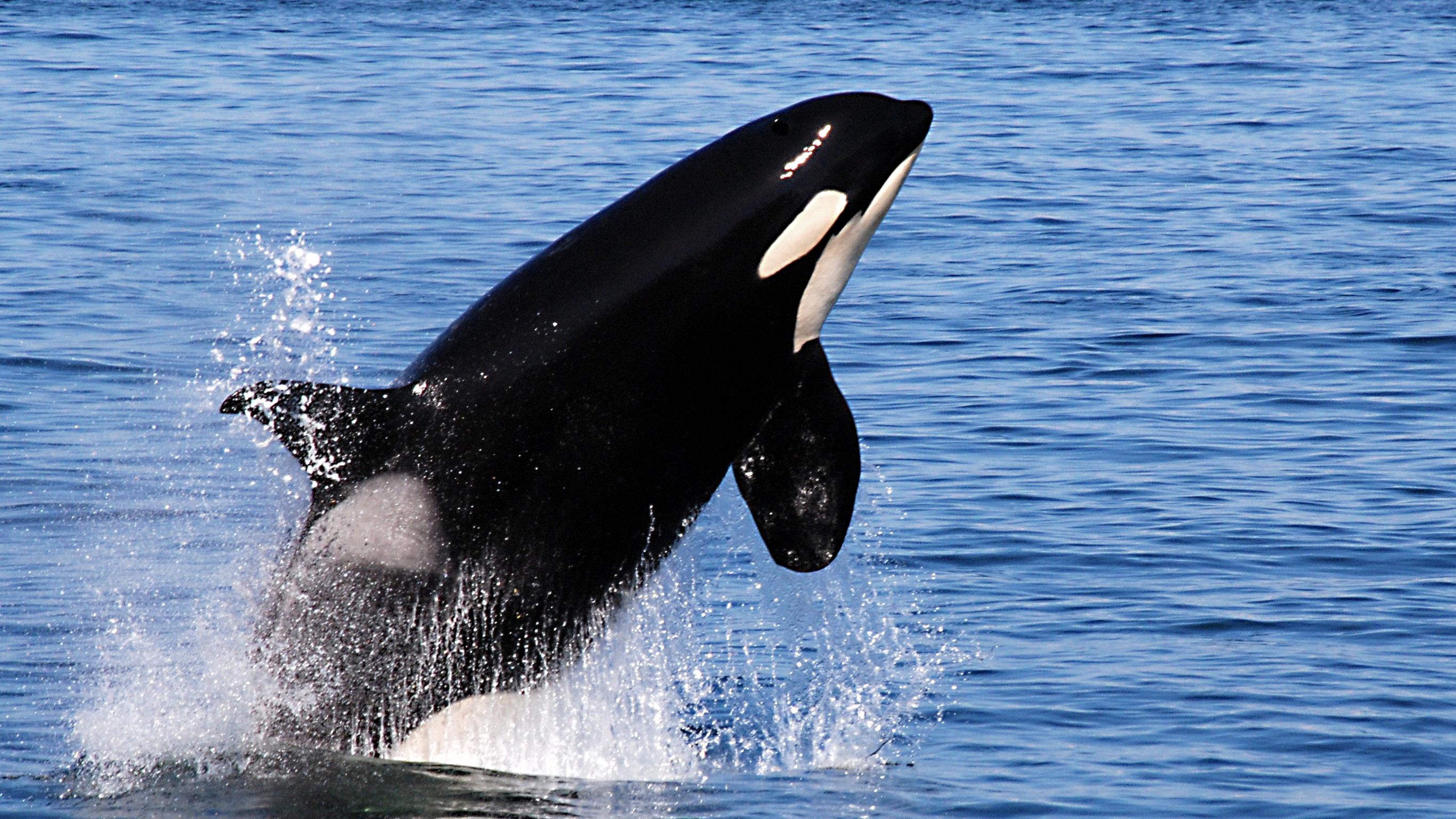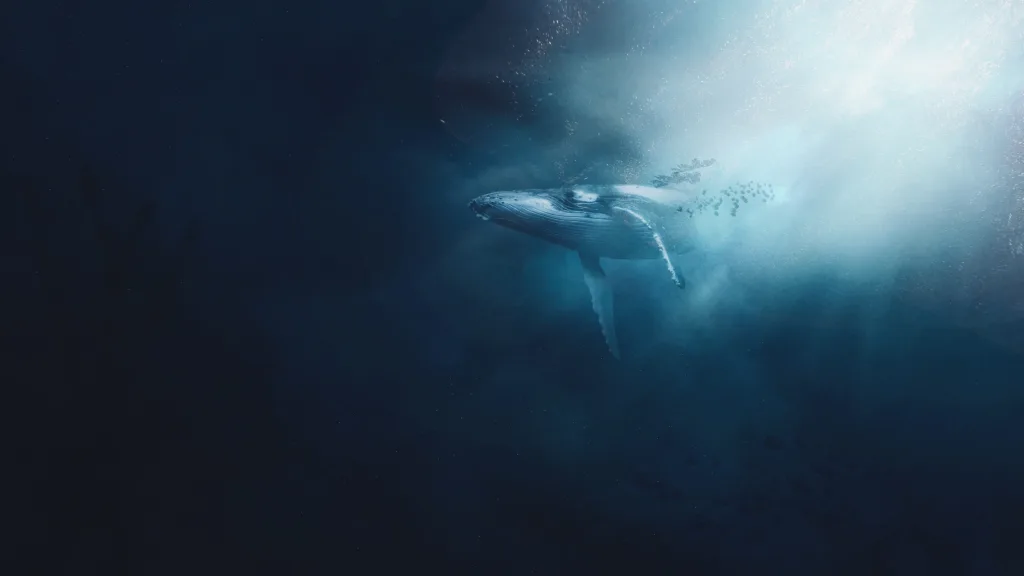Whales have long captivated human imagination with their massive size and gentle nature, but there is a common question that often arises when discussing these marine mammals: do whales eat humans? While there are many stories in mythology and history about whales consuming humans or their body parts, there is no actual evidence to support this claim.
In fact, many whale species are fairly friendly and/or curious about humans and rarely attack humans unless provoked or threatened. The idea of a whale attacking a human is often perpetuated by sensationalized media coverage of rare incidents, such as the tragic death of trainer Dawn Brancheau in 2010 at SeaWorld Orlando.
However, it is important to note that there are no known cases of whales consuming humans or their body parts. But why is this the case? The answer lies in the feeding behavior and dietary preferences of whales.
For example, orcas, also known as killer whales, are apex predators that hunt and feed on a variety of marine mammals, fish, and even birds. While their diet is diverse, they are known to be fussy eaters and tend to only consume what their mothers teach them is safe. This means that humans, who are not a reliable food source, were never sampled by orcas.
Similarly, baleen whales, such as humpback and blue whales, have a diet consisting mainly of krill and small fish. While they may accidentally ingest small objects such as plastic or debris, their throats are not capable of swallowing anything as large as a human.
It is also important to note that whales have no incentive to attack humans. Unlike sharks, which may mistake a swimmer or surfer for prey, whales do not view humans as a food source. In fact, many whale species are known to be curious and approach boats or swimmers, but do not exhibit any aggressive behavior.
While it is technically posible to survive being swallowed by a whale, it is extremely unlikely. There are no known cases of whales consuming humans or their body parts, and the gentle nature and dietary preferences of whales make it highly unlikely that they would ever view humans as a food source. So, the next time someone asks if whales eat humans, you can confidently say no.
The Impact of Whales on Humans
Whales are generally considered to be gentle giants and do not intentionally harm humans. In fact, there have been no reported cases of whales consuming humans or their body parts in mythology or history. Many whale species are known to be friendly and curious about humans, often approaching boats and divers. However, it’s important to note that whales are wild animals and can bcome agitated or defensive if they feel threatened or provoked. In rare cases, whales have been known to accidentally harm humans while swimming or breaching out of the water. It’s important for humans to exercise caution when interacting with whales and to respect their space and natural behavior.

Why Whales Do Not Consume Humans
Whales, especially the larger species such as the sperm whale and the killer whale (orca), are knwn to be apex predators and can prey on a variety of marine animals such as fish, squid, and seals. However, despite their ability to hunt and kill other animals, whales do not eat humans. There are a few reasons why this is the case.
Firstly, whales have a specific diet that is passed down from their mothers. They learn from a young age what types of animals are safe to eat and what should be avoided. Since humans are not a natural part of their diet, they are not likely to view us as a potential food source.
Secondly, whales have not evolved to hunt humans. They are adapted to hunting in the marine environment and are not equipped to capture and consume land animals. Humans, being terrestrial animals, do not fit the profile of the typical prey that whales are adapted to hunt.
Lastly, it is important to note that whales are not aggressive towards humans. They are known to be intelligent and curious creatures and have been known to interact with humans in the wild. However, it is important to maintain a safe distance from these animals to avoid any potential harm to both humans and whales.
In conclusion, whales do not eat humans because they are not part of their natural diet, they are not adapted to hunting land animals, and they are not aggressive towards humans.
Can Humans Survive Inside a Whale?
While it is technically possible for a human to survive being swallowed by a whale, it is highly unlikely. Whales are capable of swallowing large prey, such as squid or small fish, but their throats are not large enough to accommodate a human. Even if a whale were able to swallow a human, the lack of air and extreme pressure in the whale’s stomach would quickly prove fatal. Additionally, the digestive acids and enzymes in the whale’s stomach would begin to break down and dissolve any organic matter, including a human body, within a matter of hours. Therefore, while it is theoretically possible to survive being swallowed by a whale, it is not somethng that one should rely on as a means of survival.
Is Swimming with Whales Safe?
Yes, it is generally safe to swim with whales. Humpback whales, for example, are known to be gentle creatures and are unlikely to pose a threat to humans. However, it is important to follow the instructions of your guide to ensure your safety and the safety of the whales. It is also important to be respectful to the whales by keeping a safe distance and not touching them. Humpback whales are very aware of their surroundings and will avoid anything or anybody on their path. Overall, swimming with whales can be a unique and unforgettable experience, but it should alays be done in a responsible and respectful manner.
Can Whales Swallow Humans?
No, a whale cannot swallow a man. While whales are known for having enormous mouths, their throats are actually quite small, only about the size of a human fist. This means that even if a person were to accidentally fall into a whale’s mouth, they would not be able to fit down the whale’s throat and would be quickly expelled. Additionally, whales are filter feeders, meaning they primarily consume small fish and plankton, not large animals like humans. So, while it may be a common myth or misconception that whales can swallow people, it is simply not physically possible.

Source: pbs.org
Can Humans Choke on Whales?
No, whales canot choke on humans. This is because whales have a separate trachea and esophagus, unlike humans who share the same pathway for air and food. The whale’s blowhole, which is essentially their nostril, is connected to their trachea and lungs, but it is not connected to their digestive system. Therefore, even if a human were to accidentally end up in a whale’s mouth, the whale would not be able to swallow them and they would eventually be spit out. It is important to note that it is extremely rare for a whale to intentionally attack a human, and incidents of accidental interactions between whales and humans are also uncommon.
The Benefits of Dolphins’ Friendliness Towards Humans
Dolphins are known for their friendly and sociable behavior towards humans. One of the main reasons behind this behavior is the fact that humans often provide them food. Dolphins are highly intelligent animals and have learned to associate humans with a source of food. In areas where dolphins are frequently encountered by humans, they are often fed by fishermen and tourists, which has led to them becoming more comfortable with human interaction. Additionally, dolphins are naturally curious animals and are known for their playful behavior. They may approach humans out of curiosity and engage in interactions that are perceived as friendly. Overall, while dolphins may apper friendly towards humans, it is important to remember that they are still wild animals and should be treated with respect and caution.
The Consequences of Being Swallowed by a Whale
If a whale were to swallow a human being, it would likely result in suffocation, crushing, or being burned in stomach acid. Only one species of whale, the sperm whale, has a throat large enough to fit a human, and even then it would be extremely rare for a whale to accidentally swallow a human. The pressure and lack of oxygen within the whale’s stomach would make it impossible for a person to survive. Additionally, the acids in the whale’s digestive system would quickly dissolve any human tissue, resulting in severe injury or death. Therefore, it is important to remember that wile whales are fascinating creatures, it is not safe to be swallowed by them.
What Are the Consequences of Being Swallowed by a Whale Shark?
According to a study led by marine biologist Dr. Motta in 2010, if a whale shark were to swallow a person, the shark would most likely immediately spit the person out. This is because whale sharks prefer to eat items that are within their typical diet and would find a human to be foreign and unappetizing. Additionally, whale sharks have a unique feeding anatomy that alows them to filter feed on plankton and small fish, making it highly unlikely for them to be able to swallow a human whole. Therefore, while it is important to exercise caution and respect around all marine life, the chances of being swallowed by a whale shark are very low.

The Possibility of a Man Living in a Whale for Three Days
It is highly unlikely for a man to live inside a whale for three days. While thre have been rare cases of people surviving inside the belly of a whale, these incidents are extremely rare and not well-documented. In most cases, the acids in the whale’s digestive system would quickly break down any human body and cause death within a matter of hours. Therefore, it is important to note that Luigi Marquez’s survival story of spending three days inside a whale is a highly unusual and remarkable case. It is not recommended for anyone to try and replicate this experience, as it could result in serious injury or death.
Conclusion
In conclusion, despite the many stories and myths about whales consuming humans or their body parts, there is no evidence to support such claims. It is highly unlikely for whales to attack humans in the wild, as they are generally friendly and curious creatures. Orcas, in particular, are fussy eaters and only tend to sample what their mothers teach them is safe. Since humans would never have qualified as a reliable food source, they were never sampled. While it is technically possible for a human to survive beng swallowed by a whale, the probability of such an event occurring is extremely low. Therefore, it is safe to say that whales do not eat humans.
